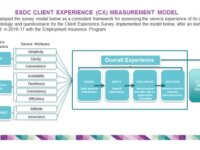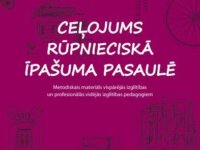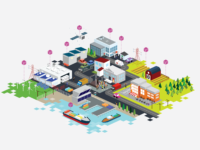The Client Centric Policy Playbook strengthens the ability to engage clients in the design of program and service policies.
Through extensive engagement with policy experts and employees on-the-ground, the Playbook has brought together innovative best practices, tools and resources for engaging clients.
This solution enhances client experience by giving clients an opportunity to be part of the policy generation process and by ensuring that programs and services are reflective of their needs.
Innovation Tag: Methods and Tools
The Client Experience Measurement Survey Model was developed by Employment and Social Development Canada to gather and analyse client feedback to improve service delivery to its clients. Canadians have been able to express their views on government programs and services, which have informed the way programs and services are designed and delivered. The survey allows the tracking of service satisfaction, ease of access, effectiveness of service delivery, and the experience of particular programs…
MEData is the strategy for providing, appropriating and using the public data of Medellin. It will become the official information source of the city, where citizens will have constant and reliable data that can be used to generate knowledge, promote technological innovation and boost economy. it is the first government platform that integrates strategic information sources into a big data technology and automatically synchronizes them with an open data portal.
EUIPO studies show that young people are lacking information on intellectual property, and the available information is presented in an ineffective way for the specific age group. Starting the new 2018/2019 school year in Latvia, general education, academic secondary education and vocational secondary education teachers will have the opportunity to integrate intellectual property issues in their lessons, thus contributing to the formation of a responsible and innovative new generation.
The Northern Ireland (NI) Public Sector Innovation Lab has organised a hackathon, “Hack the Pain,” to address these needs of an underserved group: people with persistent pain. These individuals need for better information services for self-management, and the projects that emerged from the hackathon include a virtual reality app for mindfulness, a pain tracking app and a website of information on pain management techniques.
The air-purifying billboard is a Macedonian innovative prototype that aim to clean the ambient air mainly polluted from traffic. There are currently 2 pilot billboards implementing this technology.
The vacuum cleaning based solution, if set to all 820 billboards in Skopje can reduce air pollution by up to 20%, as the filter can purify 2.5 million cubic meters of air per month. The filters can absorb the PM10, PM 2.5 and other harmful particles. Around 200,000 bus passengers and 150,000 more…
Open policy-making is an opportunity for government and stakeholders to move from linear, polarized, single-issue, interest-based considerations to interactions that are networked, collaborative, opportunity-based and where complexity is viewed as an asset. Adapted for the Government of Canada context, Pol.is is a cost-effective and highly scalable, digital engagement platform that can be used as part of broader strategies to put people and robust evidence at the heart of government decisions.
The frameworks for creating and managing the rule of government, as reflected in policies, legislation and regulation, are still based on a paper paradigm. In a digital world this creates poor service experiences and often the intent of a policy is not achieved. Instead if we co-design authoritative machine-consumable rules we can provide better services for citizens, better delivery of policy intent, and enable communities, NGOs and private sector to be part of a government service ecosystem.
The European Commission led #Blockchain4EU as a forward-looking exploration of existing, emerging and potential Blockchain and other DLTs (Distributed Ledger Technologies) applications for industrial sectors. Through an experimental and participatory approach, this project allowed first to come up with an overview of promising applications across industries, and second to co-design five prototypes that physically showcase how Blockchain could be applied in the near future.
Canada Beyond 150 was an experiment in leadership development for a diverse cohort of new public servants, with the goal of encouraging a culture shift to a more open and innovative public service. Working in groups part-time over a year, participants learned foresight, design thinking and external engagement methods and applied them to complex policy issues, with a focus on diversity and inclusion. It demonstrated the power of experiential learning, especially from engagement with stakeholders.



